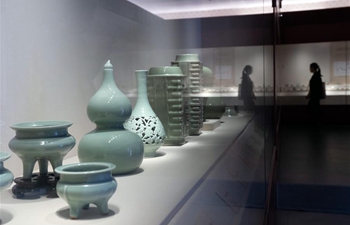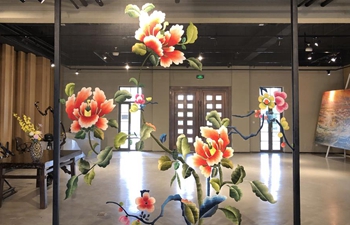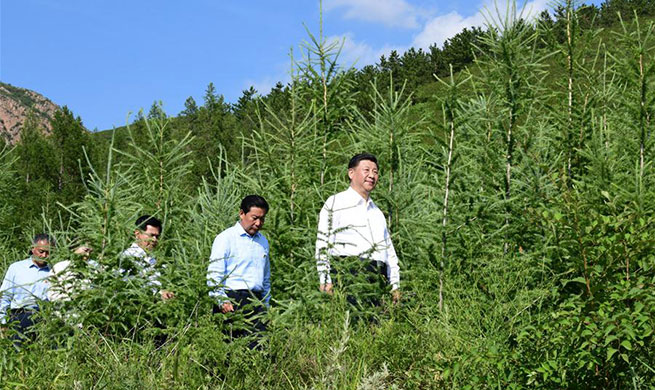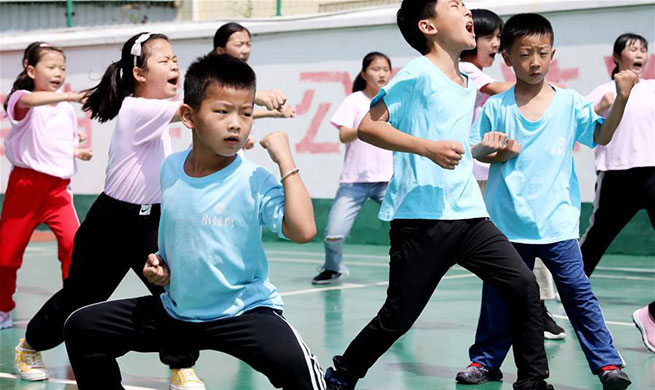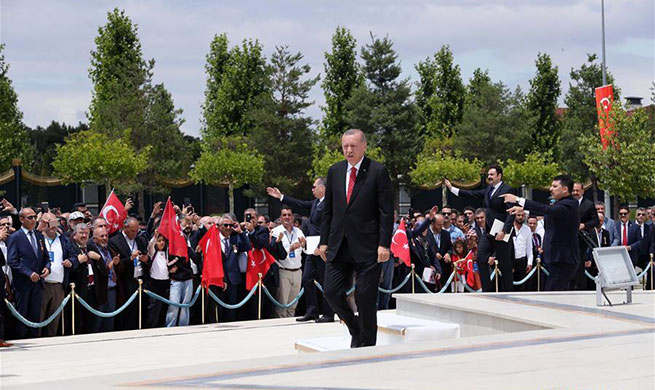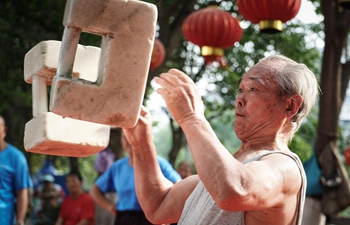LANZHOU, July 16 (Xinhua) -- As rainfall increases, the ancient grottoes in northwest China's Gansu Province, home to the UNESCO World Heritage Site Mogao Grottoes, are facing unprecedented challenges.
The arid climate in China's western areas is a major reason that the grottoes have been preserved for thousands of years.
Besides the renowned Mogao Grottoes in Dunhuang, Gansu Province is also home to the Maijishan Grottoes in Tianshui and Binglingsi Grottoes in Yongjing, where torrential rains lashed the sites and caused landslides in 2018. The grottoes are home to exquisite, well preserved murals and sculptures.
However, heavy rain recently hit the city of Dunhuang, where the Mogao Grottoes are located. It was the biggest rainfall around the grottoes, since the Dunhuang Academy China began tracking records of precipitation there in 1989. Although the downpours did not do much damage to the grottoes, they caused falling rocks and water leaks. The only road leading to the grottoes was damaged by floods.
Research shows that the climate in China's western areas is undergoing a gradual change from warm-dry to warm-wet. The drought and water shortage in northwest China has not changed, but there is a trend of increasing rainfall and rising temperatures, especially in flood seasons, said Han Tao, a meteorological expert in Lanzhou, the provincial capital.
"Although the impact of rainfall on the grottoes needs to be further observed, it is definitely detrimental to their conservation," said Guo Qinglin, with Dunhuang Academy China.
The rainfall can give rise to floods and rockfall, threatening the security of people and the grottoes, with murals inside possibly eroded by high humidity.
According to the Chinese Academy of Sciences, in the next two or three decades, the water resources in China's northwestern areas will rise.
Flood control projects have been constructed around the Mogao Grottoes by the National Cultural Heritage Administration since 2011, with a monitoring system precisely detecting humidity changes.
"Once the relative humidity exceeds 63 percent, the Grottoes will be closed to tourists," Guo said. "Further study will be conducted to improve protection against natural disasters."





